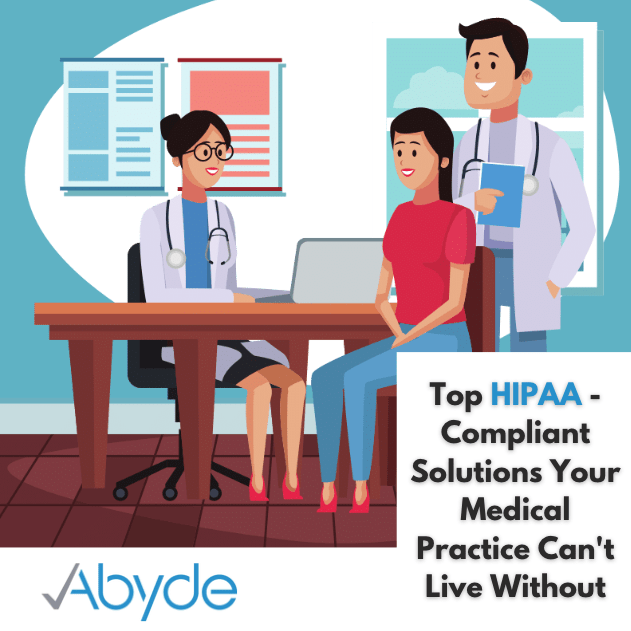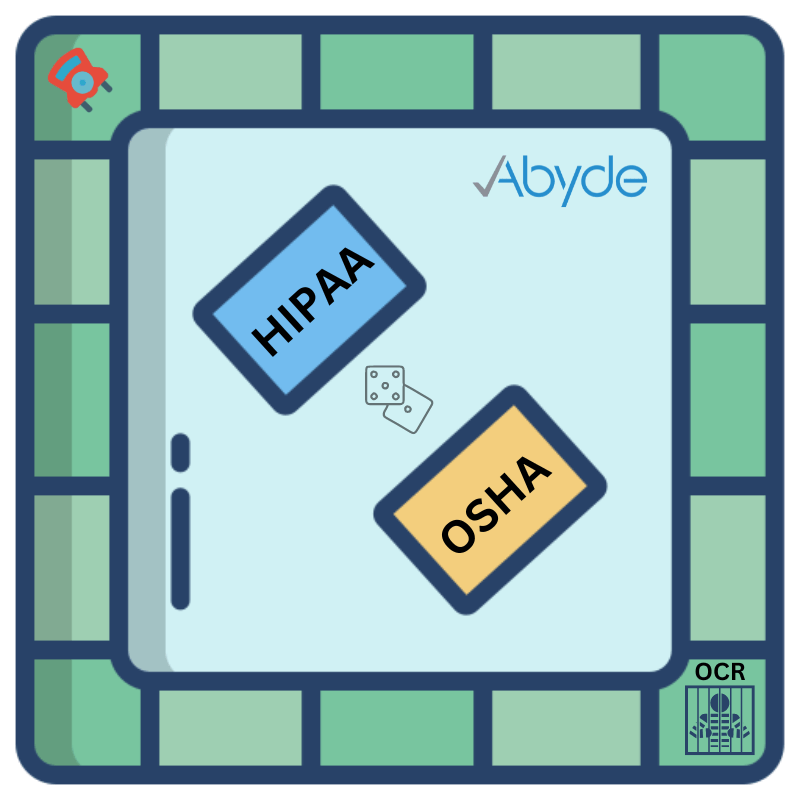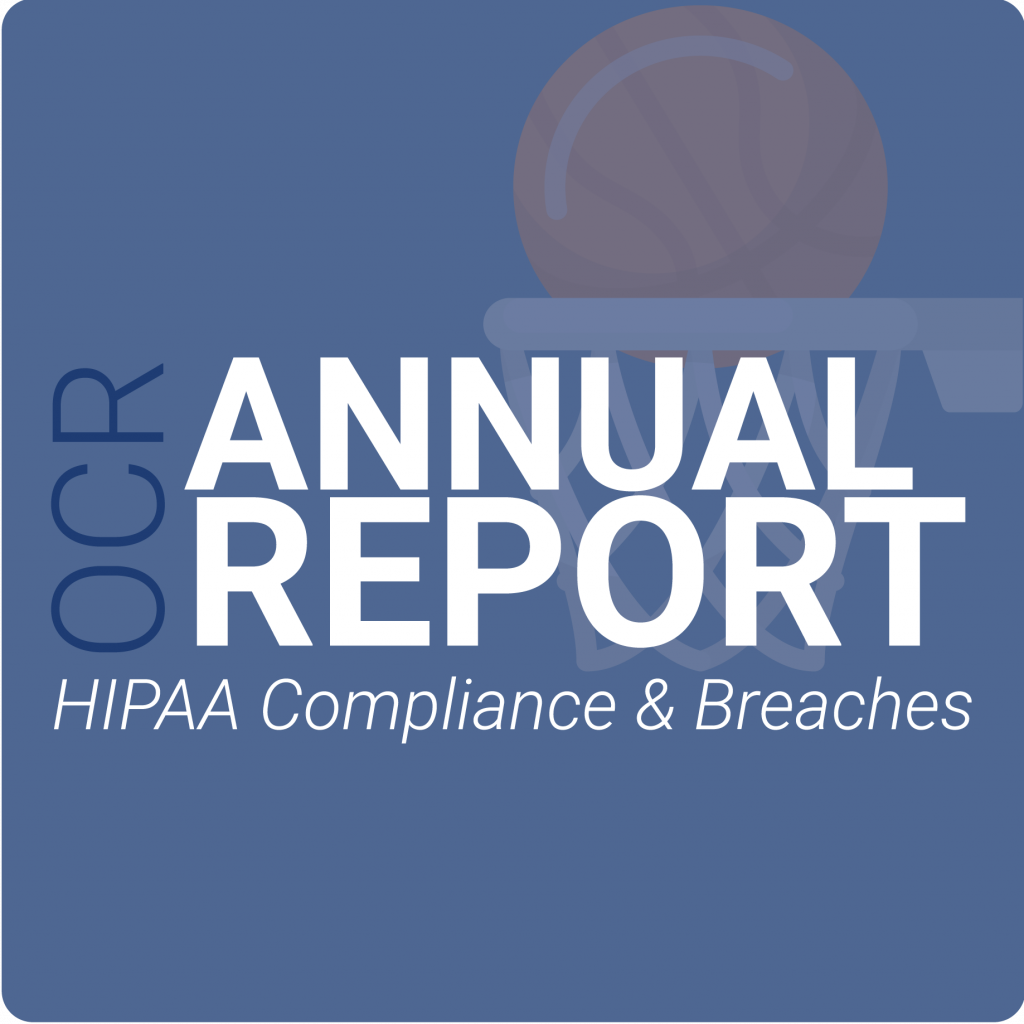May 11, 2023 Small organizations are prime targets for cyberattacks because they are typically less likely to have robust cybersecurity systems if any at all. Yet Aspen Dental, with over 1,000 offices across the United States, recently fell victim to a cyberattack that disrupted its ability to access scheduling systems, phone systems, and other essential business applications. No organization of any size or industry is immune to cyberattacks. The Aspen Group has not confirmed whether or not patient information was compromised, and is still actively investigating the incident’s scope. The breach was first discovered on April 25 and if it turns out that sensitive, personal information was involved in the incident, Aspen Dental will notify the affected individuals in accordance with applicable laws. The healthcare industry is number one on the list of targets for cybercriminals due to the nature of the industry having massive amounts of sensitive personal data for patients ranging from medical records to credit card numbers to home addresses. Dr. Jay Wolfson, USF Associate Dean for Health Policy and Practice said, “Healthcare is the richest source of data for poor people looking to commit fraud and get data on people.” According to a report from healthcaredive.com, 385 million patient records have been exposed as a result of healthcare breaches from 2010 to 2022, emphasizing the critical need for comprehensive security measures like those provided by Abyde’s compliance solutions software. The insurmountable cost of a breach followed by investigations and legalities concerning HIPAA can be detrimental not only financially but also to the reputation of a healthcare entity. In light of Aspen Dental’s breach, it is evident that using a Compliance-as-a-Software like Abyde’s would have significantly reduced the risk of a cyber event. Abyde’s software offers a comprehensive solution to help healthcare organizations maintain compliance, safeguard sensitive patient information, and ensure the safety of business operations. Investing in such preventative measures allows healthcare organizations to protect themselves from devastating cybersecurity incidents and the endless headache that is sure to follow. This incident goes on to prove that there is no practice too big for compliance.
Healthcare Provider Pays $15,000 Due to HIPAA Violation
May 9, 2023 The United States Department of Health and Human Services, Office for Civil Rights (HHS), recently settled a case against the Office of David Mente, MA, LPC, for a violation of the Health Insurance Portability and Accountability Act (HIPAA) Privacy Rule. The healthcare provider, who offers psychological care in Pittsburgh, Pennsylvania, has agreed to pay $15,000 and enter into a Corrective Action Plan (CAP). HHS received a complaint in December 2017 alleging that David Mente, MA, LPC refused to provide individual access to their minor children’s protected health information. After receiving technical assistance from HHS, a second complaint was filed in May 2018 concerning the continued noncompliance with the Privacy Rule. HHS investigated and found that David Mente, MA, LPC failed to provide timely access to protected health information since April 6, 2018. The parties agreed to resolve the matter without further investigation or formal proceedings. David Mente, MA, LPC, will pay a resolution amount of $15,000 and comply with a CAP to address the violation. The healthcare provider does not admit liability, nor does HHS concede that there is no violation of the HIPAA Rules. This situation could have been prevented with the help of the Abyde HIPAA Compliance Software Solution. The software offers a comprehensive and user-friendly solution to help healthcare providers maintain HIPAA compliance by assessing risk, implementing required policies and procedures, and providing ongoing support. By utilizing Abyde, healthcare providers can ensure that they are meeting the Privacy, Security, and Breach Notification Rules requirements and avoid costly settlements like the one faced by David Mente, MA, LPC.
Top HIPAA Compliant Solutions Your Medical Practice Can’t Live Without
May 2, 2023 The Health Insurance Portability and Accountability Act (HIPAA) was enacted in 1996 to enhance privacy and security in the healthcare sector. One of the key provisions of this legislation is the need for healthcare organizations, including independent medical practices, to protect the privacy and security of their patient’s health information. As a result, HIPAA software solutions have emerged as crucial tools for ensuring compliance and safeguarding sensitive data. In this article, we will explore why HIPAA software solutions are essential for independent medical practices. • Efficient Management of Patient Data Independent medical practices typically handle a significant amount of sensitive patient data, ranging from medical histories and diagnoses to billing information. HIPAA software solutions streamline the management of this data by providing an organized, secure platform for storing and accessing patient information. This improves efficiency and helps medical practices comply with HIPAA’s Privacy and Security Rules, which mandate strict controls over the use and disclosure of protected health information (PHI). Recommended Companies; • Enhanced Data Security Data breaches are an ever-present threat in the healthcare sector. They can lead to significant financial and reputational damage, not to mention the harm caused to patients whose information is compromised. By implementing network and database security solutions, independent medical practices can significantly improve the protection of their data. These solutions often come with robust encryption, access controls, and audit trails, which help prevent unauthorized access and ensure compliance with HIPAA’s Security Rules. Recommended Companies; • Minimizing the Risk of Non-Compliance HIPAA non-compliance can result in severe penalties, including hefty fines and criminal charges. For independent medical practices with limited resources, the costs of non-compliance can be particularly devastating. However, HIPAA risk management software solutions help practices navigate complex regulations and maintain compliance by providing the documentation necessary to prove compliance, training modules, and regular updates that reflect changes in federal and state laws changes. Recommended Companies; • Streamlined Workflows and Improved Patient Care By automating many tasks associated with managing patient data, HIPAA software solutions that improve processes can help independent medical practices save valuable time and resources. This enables healthcare professionals to focus more on providing quality care to their patients. For example, software solutions may include features such as appointment scheduling, electronic prescription management, and secure messaging, which streamline workflows and improve patient-provider communication. Recommended Companies; • Storing and Transmitting Patient Images and Data Data sharing in a compliant manner ensures it’s secure, efficient, and getting into the right hands. Having HIPAA-compliant solutions that provide a forum to share patient data and images easily can help providers quickly get the important details needed to provide next-level care to patients. The other side to this critical point is the patient experience. As patients are increasingly concerned about the privacy and security of their health information, allowing patients to access their data without barriers while being secure is a great way to build trust between patients and providers. Recommended Companies; In Summary HIPAA software solutions are an indispensable asset for independent medical practices, offering numerous benefits ranging from improved data management to enhanced security and compliance. By leveraging these solutions, healthcare professionals can focus on their primary mission—providing quality care to their patients—while ensuring that they are operating within the confines of the law. In an increasingly competitive healthcare landscape, independent medical practices cannot afford to overlook the importance of HIPAA software solutions in safeguarding their patients’ information and maintaining their reputation.
Draft Your Compliance Dream Team: Abyde’s Winning Strategy for HIPAA, OSHA, and NFL-inspired Success
April 28, 2023 Is it draft season already? NFL teams have been stressing daily to boost their lineups and prepare for the upcoming season. With the NFL draft officially underway, teams risk their future success with unproven prospects. Why take a risk? Maybe they have identified a position that isn’t as strong as another, or perhaps they are looking into future potential. At Abyde, we take all the stress and guesswork out of compliance. Whether it’s HIPAA or OSHA, we’ve got you covered. Just like in the NFL, we also have a starting lineup. The Security Rule establishes national standards for protecting electronic PHI (ePHI). Covered entities and their business associates must implement administrative, physical, and technical safeguards to protect ePHI from unauthorized access, use, or disclosure. So how do we save you? Like a good offensive center, our Security Risk Analysis will adapt to your practice’s needs and uncover potential risks. After taking this assessment, we will generate a Scorecard for the practice. Look at this as your playsheet. We will guide you through your high, medium, and low-risk items and even give you the ability to update any answer with the click of a button. There’s no “I” in a team, so what else is a part of our starting lineup? HIPAA Privacy Rule sets national standards for the protection of PHI. Covered entities and their business associates must ensure that they protect the privacy of patient’s PHI and provide patients with specific rights regarding their PHI, such as the right to access and correct their health records. Do you have Business Associate Agreements in place? How about policies and procedures for your practice? Abyde’sSecurity Risk Analysis will help dynamically generate your practice’s specific documentation. Like a good teammate, this will help guide you through you to ensure a culture of compliance within the office. Think we forgot about OSHA? There are also standards that the government requires practices to follow, which include Hazard Communication Standard, Bloodborne Pathogens Standard, and Personal Protective Equipment Standard, to name a few. So how do you keep pushing downfield while these standards set their sights on you? Abyde’s Facility Risk Assessment (FRA) and Emergency Action Plan (EAP) have your blindside like a hall-of-fame left tackle protecting you and your practice with insight on ensuring a safe and healthy workplace. In addition, the FRA establishes a game plan for the future. Abyde’s revolutionary software also provides specific employee training for the above standards. With Abyde, your documented compliance solution will protect you better than a Pro Bowl lineman! So, hopefully, your team – errr, practice – will make the right decisions this year, both on and off the field!
ChatGPT & HIPAA: A Quick Guide on What You Need to Know
April 26, 2023 If you haven’t heard about ChatGPT over the last few months, you might still be Googling everything! ChatGPT launched in November 2022 and has taken the internet by storm. Developed by OpenAI, using artificial intelligence (AI) technology, it can have human-like conversations while giving you all the details of whatever you may ask it. So we haven’t seen it be able to make you dinner just yet. Still, it has successfully written computer programming, passed a series of different exams, and written entire feature-length articles. (Wow, I feel like a doting parent!) AI language models are transforming how we approach everyday tasks or complete major projects, and the healthcare industry has even jumped on board the ChatGPT train. ChatGPT has assisted in scheduling appointments, treatment plan assistance, patient education, medical coding, and more! While this all sounds exciting and has the opportunity to improve patient care, protecting your patient’s data when using these types of tools will be imperative and should be approached with caution. So what are some of the red flags to be aware of when it comes to HIPAA compliance: • At this time, OpenAI does not sign a Business Associate Agreement. Therefore, it is not HIPAA compliant. HIPAA regulations require that covered entities only share PHI with vendors who have signed a BAA. This ensures that PHI is protected and that all parties comply with HIPAA laws and regulations. Prior to implementing any AI technology that processes or accesses PHI, covered entities must enter into a business associate agreement with the vendor of such technology. • Protect PHI when using the chat platform. OpenAI warns against inputting confidential information into the platform. As with many technology platforms, ChatGPT collects information and reviews conversations to improve systems and services. In other words, there is no telling where that data is being stored and, therefore, cannot be protected. Because this platform is not HIPAA compliant, it’s super important to remember not to input any identifiable patient information. When working with PHI, de-identifying or anonymizing data is key to minimizing the risk of a data breach. • Establish access controls and monitor chat logs. To minimize risk, access to chat logs should be restricted to those who need it as part of their job function. Don’t forget to implement written documentation of which employees can access chat logs, and be sure to revoke access if necessary. These chat logs are highly recommended to be monitored and audited to ensure they do not contain any PHI. • Establish Policies and Procedures and train employees. When implementing a new technology, such as ChatGPT, that potentially accesses PHI, policies, and procedures must be implemented to ensure that all appropriate safeguards are in place to support the use of the new technology. Training employees on properly using new technology is also super important. Training should include security best practices, data privacy importance, and incident reporting steps if necessary. • Create and implement an incident response policy. As with any security risk, having an incident response policy is super important to help mitigate risk in the case of a breach. This plan should include procedures for identifying and mitigating the incident, notifying affected individuals, and investigating the cause of the incident to prevent future incidents. By proactively prioritizing patient privacy and security, healthcare organizations can greatly benefit from ChatGPT and other AI language models. Streamlining administrative work and improving patient outcomes, sounds like a win-win. But, it’s critical that you carefully balance increased efficiency and elevated risks related to patient data privacy. This is new for everyone, so not making drastic changes to your business because of something ChatGPT can do should be considered. Your patients still want human experiences, and that is something ChatGPT can’t take away from you and your staff!How can you stay up to date on the latest compliance trends and news? Contact our compliance experts at Abyde today for guidance on this everchanging technical landscape and see how we can help you be successful in the years ahead! To book a demo with one of our Abyde specialists, click here or call us at (800) 594-0883
A Culture of Compliance – Your Get Out of Jail Free Card
April 18, 2023 Everyone wishes for the “Get Out of Jail Free” card in the game of Monopoly, so you can sell it and make money or free yourself from the slammer and continue your quest for wealth. But don’t you wish you had a card like this in real life so you could avoid paying a late fee, get out of an awkward situation, or get out of a speeding ticket? Imagine handing a police officer the card with your license and registration, I bet you would get a good chuckle! When it comes to healthcare compliance, demonstrating “good faith” could provide you with that much-needed “Get Out of Jail Free” card if you are investigated, audited, or are facing a violation. “Good faith” generally means that you have made a sincere and honest effort to comply with applicable laws, regulations, or standards pertaining to HIPAA and OSHA. So what do regulators look for when determining whether or not a practice has demonstrated “good faith”? First, you have implemented policies and procedures to include applicable forms or required logs. Next, staff has been trained in accordance with HIPAA and OSHA timeframes and requirements. And most importantly, whether or not you have completed a HIPAA Security Risk Analysis and OSHA Facility Risk Assessment that have identified risks, hazards, and mitigation efforts. While regulators may consider other factors, implementing a documented compliance program suggests you are committed to compliance and taking reasonable steps to protect your patients’ PHI and provide a safe and healthy workplace for staff. It is important to keep in mind “good faith” does not guarantee immunity from regulators. Every situation will have different mitigating factors, such as malicious intent or an identified hazard that went unmitigated. While you may be promoting a culture of compliance, ignoring the blatantly obvious could lead to you losing that “Get Out of Jail Free” card. Okay, how can you win at the HIPAA and OSHA compliance game? While it may be difficult to achieve compliance perfection, having a documented culture of compliance and, even more importantly, not letting your compliance program lapse will be key. These moves will show your “good faith” effort towards safeguarding patient information and employee safety and might even earn you the jackpot or a luxury Dark Blue property (IYKYK).
OCR Announces Transition Period for Compliance with HIPAA Rules for Telehealth
April 12, 2023 As of May 12, 2023, a 90-calendar day transition period will be in effect to provide covered healthcare providers with time to come into compliance with the HIPAA Rules in relation to their provision of telehealth. The transition period will expire on August 9, 2023, at 11:59 p.m. During this period, the OCR will continue to exercise its enforcement discretion. It will not impose penalties on covered healthcare providers for noncompliance with the HIPAA Rules that occur in connection with the good faith provision of telehealth. The Notice of Expiration of Certain Notifications of Enforcement Discretion Issued in Response to the COVID-19 Nationwide Public Health Emergency is available at: PDF. This notice marks the end of the enforcement discretion period that was put in place by the OCR to support the healthcare sector and the public in responding to the COVID-19 public health emergency. OCR Director Melanie Fontes Rainer has emphasized that the OCR is committed to supporting the use of telehealth by ensuring that healthcare providers can make the necessary changes to their operations privately and securely in compliance with HIPAA Rules. In addition to announcing the transition period, it’s worth noting that the OCR had previously issued four Notifications of Enforcement Discretion in the Federal Register regarding how the HIPAA Rules would be applied to certain violations during the COVID-19 nationwide public health emergency. These notifications and their effective beginning and end dates are: It’s important to note that these notifications will also expire at 11:59 pm on May 11, 2023, due to the expiration of the COVID-19 public health emergency. The OCR will no longer exercise enforcement discretion for violations that occur after this date, which is why the transition period has been put in place to allow covered healthcare providers to make any necessary changes to their operations to ensure they comply with HIPAA Rules when providing telehealth services. Questions regarding HIPAA and OSHA Compliance, please email Abyde at info@abyde.com or call (800) 594-0883
HHS Announces New Divisions Within the OCR
March 14, 2023 EXTRA EXTRA READ ALL ABOUT IT!! The U.S. Department of Health and Human Services, through the Office for Civil Rights (OCR), announced the formation of a new Enforcement Division, Policy Division, and Strategic Planning Division. Why isn’t this front-page news? And why did the HHS need to form three new divisions? “OCR’s caseload has multiplied in recent years, increasing to over 51,000 complaints in 2022– an increase of 69 percent between 2017 and 2022,” said OCR Director Melanie Fontes Rainer. “…reorganization improves OCR’s ability to effectively respond to complaints, puts OCR in line with its peers’ structure, and moves OCR into the future.” The OCR will now reflect the structure set by the U.S. Department of Education’s Office for Civil Rights. The Strategic Planning Division will not only work to coordinate public outreach to protect civil rights and health information privacy. They will also expand data analytics and coordinate data collection across HHS leadership. With the OCR being proactive and educating the public on their rights, now would be the time to make sure you are being proactive with HIPAA. What is something to make sure you are staying compliant and one step ahead of the OCR? How about your Security Risk Analysis or the “Crown Jewel” of the OCR as we like to call it. It’s the first thing the OCR asks for when they come knockin’. So why not beat them to the punch? You’ll identify and assess potential threats and vulnerabilities to protected health information (PHI), as well as evaluate the effectiveness of the organization’s security measures and policies. A HIPAA Security Risk Analysis is an ongoing process that must be regularly reviewed and updated to ensure that the organization remains in compliance. Guess what, here at Abyde we automate the entire process for you. Extra, extra, HIPAA violations can result in severe consequences, including fines, legal action, and damage to a healthcare organization’s reputation. Therefore, it is critical for healthcare providers and organizations to prioritize HIPAA compliance and regularly review and update their policies and procedures to ensure they are in line with the latest regulations.
OCR Releases Annual HIPAA Compliance Reports
February 24, 2023 Believe it or not, the Office for Civil Rights kicked off NBA All-Star Weekend with their very own showcase of HIPAA enforcement’s latest and greatest. Last Friday the government released not one but two annual reports starring key HIPAA enforcement activities from 2021. While you probably won’t be seeing these reports featured on the next SportsCenter Top 10, the insights that they provide into recent healthcare data breaches and HIPAA noncompliance cases are certainly worthy of a highlight reel. So to give your practice some helpful pointers on how your compliance efforts should be focused, let’s break down the most important stats from each report: OCR’s 2021 Report to Congress on HIPAA Privacy, Security and Breach Notification Rule Compliance The biggest takeaway? Between 2017 and 2021, the OCR has seen a 39% increase in the number of HIPAA complaints received and in turn, has initiated 44% more compliance reviews. Meaning that not only are your patients paying more attention to non-compliance, but the government is too. OCR’s 2021 Report to Congress on Breaches of Unsecured Protected Health Information Now, what does all this data really mean? OCR Director, Melanie Fontes Rainer, made the intentions of these reports clear in her statement saying, “We will continue to provide guidance and technical assistance on compliance with the HIPAA Rules, as well as a vigorous enforcement program to address potential HIPAA violations.” Meaning that not only do each of those statistics provide eye-opening insight into what’s going on in the healthcare industry, but they help identify exactly what areas of compliance are too commonly overlooked. And when it comes to ensuring your practice has an all-star compliance line-up, here’s what the OCR identified as the top areas for needing improvement: So knowing what common compliance gaps exist and what a winning HIPAA program looks like, the ball is in your court. You wouldn’t put a rookie up against LeBron, and the findings from these reports are perfect examples of why you can’t go head-to-head with an evolving healthcare industry without having both compliance AND cybersecurity on your team.
Big Fish, Big Fine
February 3, 2023 A hacker dropped a line and an Arizona-based nonprofit health system got baited, hook line and sinker. Yesterday, the U.S. Department of Health and Human Services (HHS) Office for Civil Rights announced a settlement resolving a data breach. The breach, executed by a “threat actor”, disclosed the protected health information of 2.1 million consumers. Ouch! Outlined by the HHS, the HIPAA violations include: The investigation began back in 2016 after OCR received a receipt of a breach report. The hacker was able to access PHI such as patient names, physician names, dates of birth, addresses, Social Security numbers, clinical details, dates of service, claims information, lab results, medication, diagnoses and conditions, and health insurance information. As part of the settlement, the hospital paid $1,250,000 to OCR and agreed to a Corrective Action Plan. The plan highlights efforts to resolve their violations against the HIPAA Security Rule. Before you catch yourself becoming a victim of “here fishy fishy”, make sure all your ducks – or should we say fish – are in a row. As we continue to see the relevance and impact of cybersecurity incidents increase, you should be more alert and secure than ever. And if you’re thinking, well that was a hospital – that could never happen to me, be careful what your next Go Fish card is. Whether you’re a big fish in a little pond or a little fish in a big pond, hackers are targeting healthcare. This particular hospital is facing extensive hours of work to complete its Corrective Action Plan which includes conducting a risk analysis, developing a risk management plan, implementing and distributing policies and procedures, and regular follow-up with the HHS. Conveniently, these are all things Abyde can help with. Reach out today to find out how we can save you over 80 hours a year and a time-consuming Corrective Action Plan down the road.








